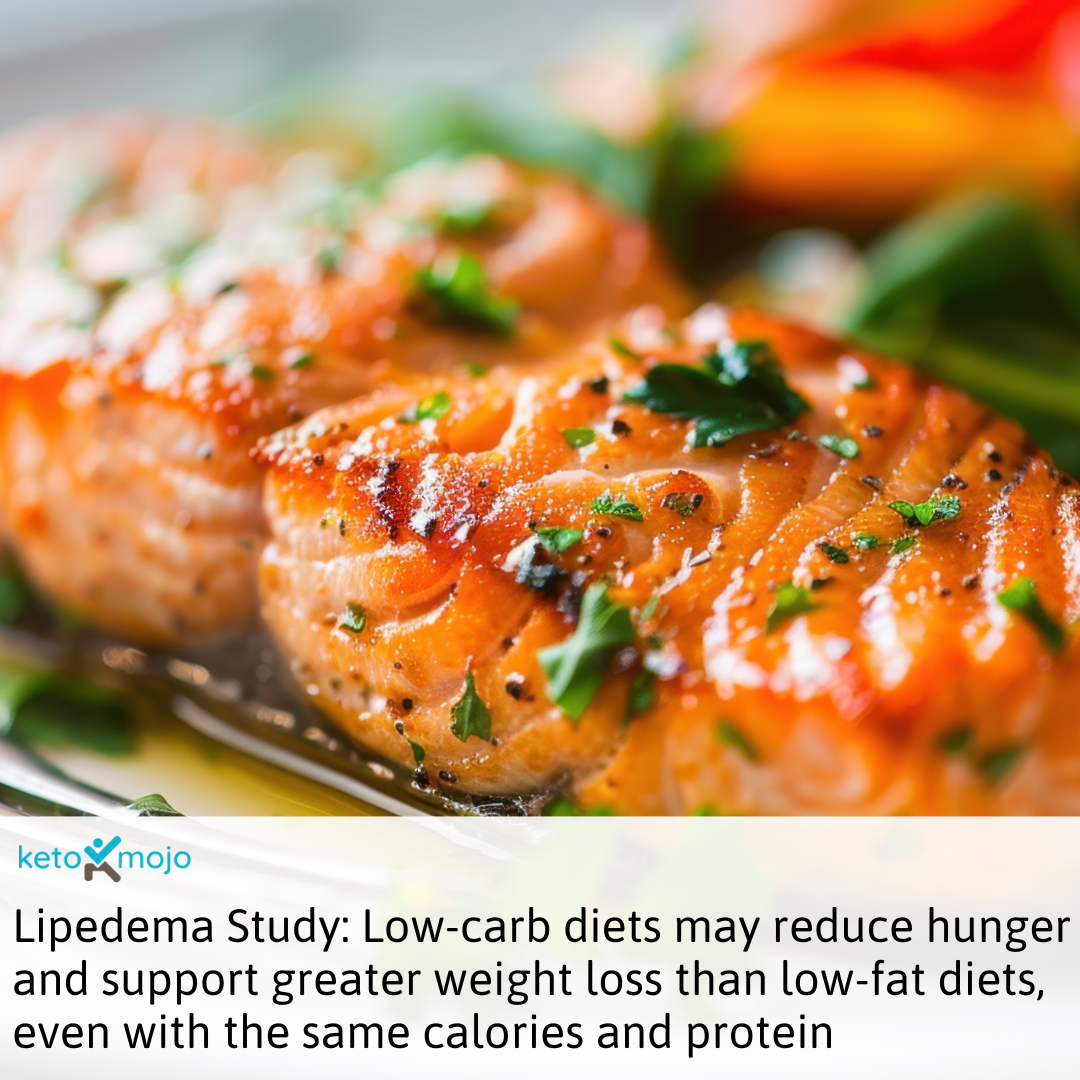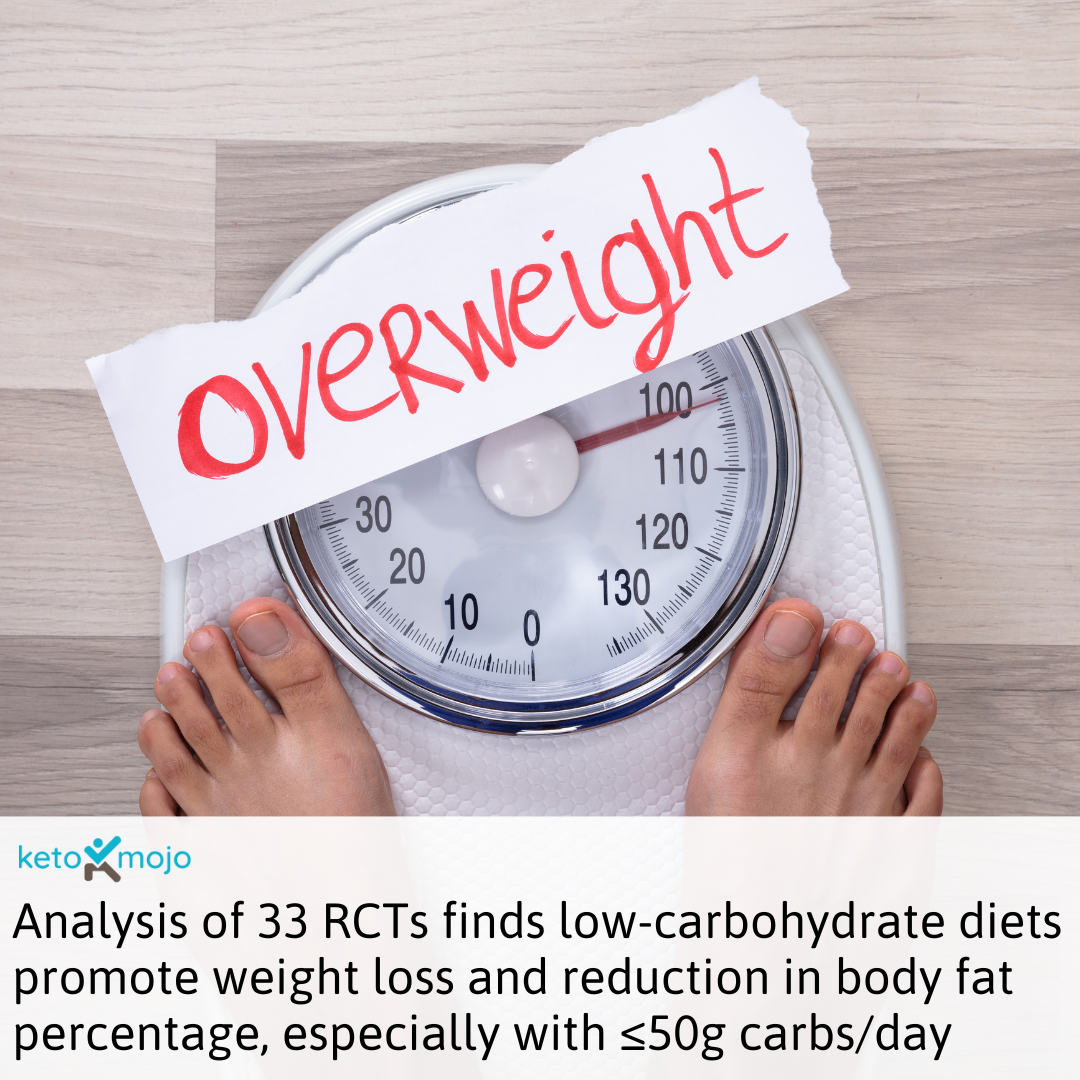Endocrine, Metabolic Syndrome, Obesity
Gastrointestinal hormones and subjective ratings of appetite after low-carbohydrate vs low-fat low-energy diets in females with lipedema – a randomized controlled trial

A randomized controlled trial published in April 2024 found that women with lipedema who followed a low-carbohydrate diet experienced more significant improvements in pain, well-being, and fat loss compared to those who followed a low-fat diet.
In a subanalysis of that trial published in November 2024, researchers compared the effects of the two diets on hunger hormones (ghrelin), satiety hormones (CCK, GLP-1, PYY), and subjective appetite ratings among the participants.
This study included 55 women with obesity and lipedema who were randomized to follow either a low-carbohydrate diet (LCD) with 75 grams of carbohydrate per day or a low-fat diet (LFD) with 180 grams per day for eight weeks. Both diets provided 1200 calories and 60 grams of protein per day.
Key findings:
- Weight loss: The LCD group averaged a 10.3% reduction in body weight, while the low-fat group averaged a 7.3% reduction.
- Ghrelin: There were no changes in fasting ghrelin concentrations in either group. However, the LCD group significantly reduced postprandial ghrelin compared to the low-fat group.
- Other hormones: Both groups showed a reduction in postprandial CCK, with no differences between groups. No significant changes were observed in GLP-1 or PYY levels between groups.
- Appetite ratings: Both groups reported increased postprandial fullness. Only the low-fat group experienced increased fasting hunger.
These findings suggest that low-carbohydrate diets may improve appetite regulation by reducing postprandial ghrelin and increasing satiety, contributing to greater weight loss than low-fat diets that provide equivalent calories and protein. Further research is needed to explore long-term outcomes and hormone sensitivity related to carbohydrate reduction.






